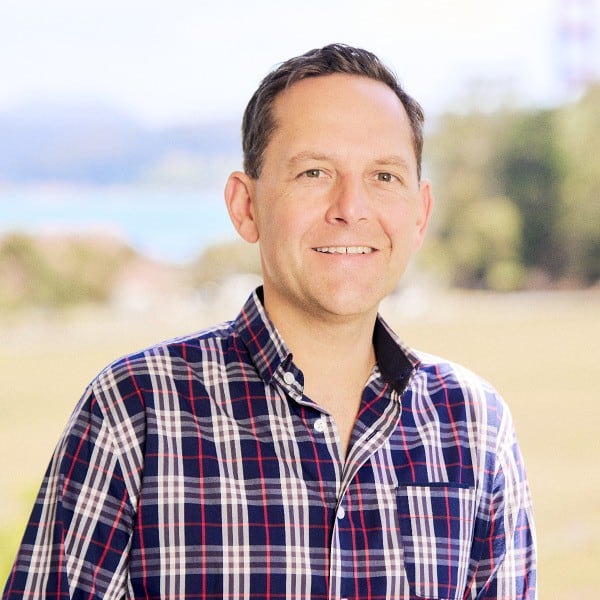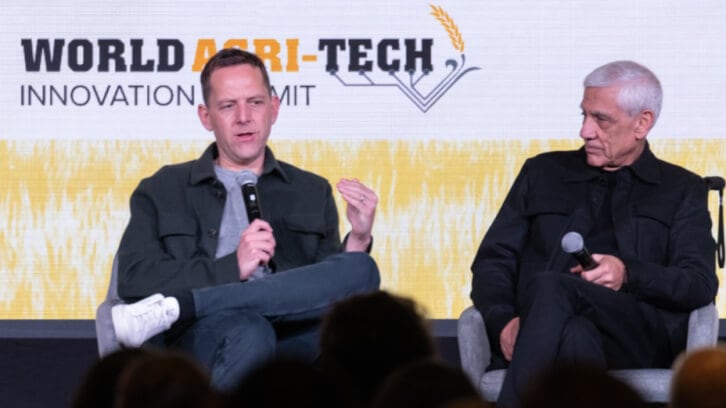Speaking with AgTechNavigator at the recent World Agri-Tech Innovation Summit in San Francisco, Friedberg filled us in on the company’s progress since it came out of stealth last year.
Ohalo’s boosted breeding technology, he explains, allows parent plants to pass on 100% of their genomes to offspring instead of the usual 50%. This results in polyploid offspring with doubled genetic material, producing genetically uniform or ‘true’ seeds offering faster breeding cycles, higher yields and enhanced resilience.
According to Friedberg, polyploidy gives plants “greater genes in the toolbox” to be able to grow faster, which translates into higher yielding, better performing crops.
Initially targeting potatoes – where early trials have seen ’insane' yield gains of “50% to 100% or more” compared to regular plants – Ohalo’s technology aims to expand to other crops. It recently unveiled a collaboration with strawberry industry leaders to make better-tasting strawberry varieties available for the first time as truly uniform true seed.
What does success look like for Ohalo?
Friedberg made his name, and his millions, after founding the Climate Corporation, the agronomy data company sold to Bayer for $1 billion.
What are the plans for Ohalo and how will the company measure its impact? “We want to be providing seed on over 100 million acres by 2040,” Friedberg says. “If we’re doing that, we’ve got a pretty substantial impact. Today there’s 45 million acres of potato globally. Assuming the seeds sells for 500 bucks an acre that’s a 20-billion-dollar seed revenue opportunity.
“So that’s how we think about the scale of the opportunity for potato. I think that over time if we’re successful with bringing seed to market in potato we could see significant growth in potato acreage worldwide.”
Political pressures
Friedberg is also CEO of The Production Board, which invests in technology businesses in food, agriculture, and life sciences, including Ohalo. On top of this, he is also one of four co-hosts of All-In, the popular business and investing podcast.
Thanks to his polymathic expertise spanning multiple disciplines, there have been rumours he may advise President Trump’s administration.
Although he denies any inside knowledge, he’s well placed to discuss the potential impact of tariffs on the sector. With prices for inputs and parts such as LEDs already up 25% or more, “someone’s gonna get hurt in the trade problem”, he warns. Though he caveats this with some reassurance that he expects financial support will be provided to farmers in the face of trade challenges, as it was in the first Trump administration.
The power of transformative tech
Friedberg is also fairly languid in the face of the industry’s major capital drought. “Rather than this be a cyclical downturn, one could argue this is a normalisation for an industry that has long investment cycles,” he tells us.
Regardless of whether we have reached the bottom of the agtech venture capital cycle, Friedberg is at pains to stress one thing: “There is always extraordinary returns to be made with extraordinary innovation in any cycle in any market in any point of time. That’s really important.”
Some disagree in the notion there will ever be a Facebook, Google, Amazon of agech, instead choosing to bet smaller on a larger number of companies that have a greater chance of exit via an M&A rather than a IPO.
But Friedberg believes in the “power law” phenomenon where a small number of entities (like companies, users, or products) disproportionately contribute to the majority of outcomes, such as revenue or market share.
“What happens in every industry is you have a power law of returns,” he explains. “You have one company: Facebook, Google, Amazon that returns 100s of billions of dollars of capital and then you have thousands of companies that lose money. What matters is that one company.
“So the VC that invests in that one company in that one moment of time gets all the returns and the same will happen in agriculture. That one breakthrough that is transformative regardless of the overall investment cycle will transform the world and will make a significant return for its investors and shareholders.”
In the last 10 years you were better off buying the NASDAQ than you were betting in the top quartile of venture capital funds. Nevertheless, Friedberg point outs that at any given moment any start-up and investor has the opportunity to find and build that power law business.
In other words, you’ve got to be in it to win it. Will Friedberg hit another jackpot with Ohalo? Perhaps tellingly, he is focussed exclusively on the start-up.
“When we had our breakthroughs and we saw the results with Boosted Breeding it became apparent to me that this company could be a transformative business for all of agriculture and I had to dedicate all my time and attention,” he reveals.
“I’m not doing any new investing.”





